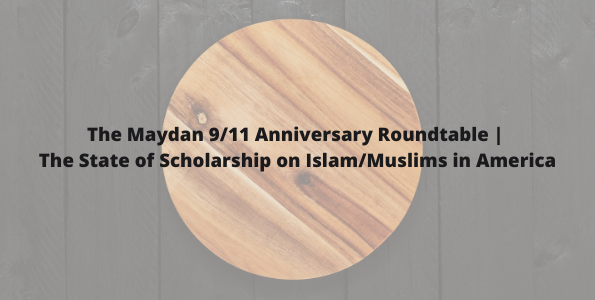
Edward E. Curtis | The Study of African American Islam/ Blackness and Islam
Maydan: What has been the most consequential impact of 9/11 for your field of study?
Edward Curtis: The number of job, publication, and grant opportunities in Islamic studies, including the study of Islam in America, rose exponentially. This was a boon to scholars in the field, but it also influenced the content of scholarship in certain ways. Many of the new jobs focused on the interpretations of Islamic texts rather than on history, anthropology, and sociology, reproducing the orientalist epistemology at the heart of modern knowledge. The imperative of creating scholarship relevant to the war on terror, the largest war ever waged by the United States against Muslim populations, led to increased attention to Arab and South Asian rather than African American Muslims, liberal/conservative Muslim American interpretations of the tradition, and anti-Muslim prejudice and violence.
But the wave of new financial support for the study of Muslim Americans was so large—and Muslim Americans were seen as such central symbols in the war on terror—that other scholarly projects came to fruition as well. African American Muslims and students of Islam in Black America fought against the erasure of Black voices and experiences. A larger number of graduate students also entered the field in increasing numbers, and their works would be published in the second decade of the twenty-first century.
What are some field-shaping works (book, article, report, film, documentary) that influenced your sub-field in the post 9/11 era?
One of the most noteworthy aspects of scholarship published after 9/11 was the key role played by Black women in its conceptualization and production. Black women re-wrote the history of the subfield, focusing on the agency and diverse experiences of African American Muslim women but also on gender and power in U.S. Islam more broadly. Among the many important studies were Carolyn Rouse, Engaged Surrender (2004); Jamillah Karim, American Muslim Women (2008); Su’ad Abdul Khabeer, Muslim Cool (2016); and Ula Y. Taylor, The Promise of Patriarchy (2017).
Another important focus of post-9/11 scholarship was the transnational and diasporic connections of African American Muslims and African-born U.S. Muslims to African and Islamic homelands, diasporas, and networks. Important books included JoAnn D’Alisera, An Imagined Geography (2004); Zain Abdullah, Black Mecca (2010); and Ousmane Kane, The Homeland Is the Arena (2011). I attempted a global survey of transnational Black Islam in The Call of Bilal (2014).
What are some gaps in scholarship?
While histories of African American Muslim organizations and leaders, ethnographies of contemporary Black communities, and analyses of race, material culture, and gender in African American Islam represented break-through discoveries, one gap that emerged in the scholarship was analysis of shared, fundamental religious practices. More work is needed on prayer, fasting, philanthropy, the celebration of holidays, and other Islamic religious activities. There is also archival work yet to do in Arabic and Ajami as well as Spanish, French, and Portuguese texts that would help us develop a more comprehensive Black Atlantic, Global South perspective on African American Islam in the era of the transatlantic slave trade.
What are one or two works that have not received the attention it deserves?
Let me suggest an approach that has not received the attention it deserves, and I will put it most plainly: Islamic studies scholars would benefit a great deal by reading more broadly in Black studies. Documentary films such as This Far by Faith and books such as Sylvester Johnson’s African American Religions, 1500-2000 integrate discussion of African American Islam into larger Black-centered narratives that will provide new ideas and questions to students of Islam, whether focused on America or not.
How (if applicable) did funding structures from foundations and the federal government influence your field of study?
It felt like foundation and federal sources of funding encouraged a classic U.S. liberal approach that saw Muslims as enemies to be defeated, foreigners to be domesticated, or multicultural American exemplars to be praised.
How do you see your sub-field of American Muslim studies evolving in the coming two decades? Are there themes that will be more prominent than others?”
My hope is that the study of Muslim America will emerge from the shadow of survival and resistance in the face of anti-Muslim animus to embrace a more mundane approach to our subject matter—something akin to the blues. It’s grounded in the messiness of a life that is spent both in front of and hidden from the gaze of white supremacy and orientalism. Looking at Muslim American culture as the blues recognizes suffering, but also accounts for playfulness, laughter, irony, oppugnancy, cunning, heartache, and much more. Jazz and hip hop are generally associated with American Islam more than the blues, but there is no reason why we can’t expand our play list to include this and other genres in the ways we listen to Muslim American voices.
Edward Curtis is the William M. and Gail M. Plater Chair of the Liberal Arts at IUPUI. His thirteen books have been called “essential,” “exemplary,” “approachable,” “groundbreaking,” “must-read,” “wonderful,” and “a model of clarity.” Curtis’ titles include Black Muslim Religion (2006), The Call of Bilal (2014), and Muslims of the Heartland (2022). Curtis is the co-founder of the Journal of Africana Religions as well as a curator of the Indianapolis Imam Warith Deen Muhammad Community digital archive. He is also the director of the Arab Indianapolis community history project. Curtis’ research has been funded by the National Endowment for the Humanities, Carnegie, Fulbright, and Mellon, among other sources.

